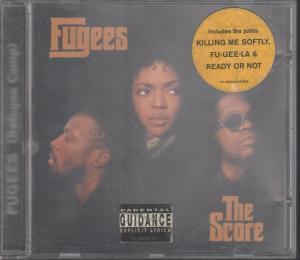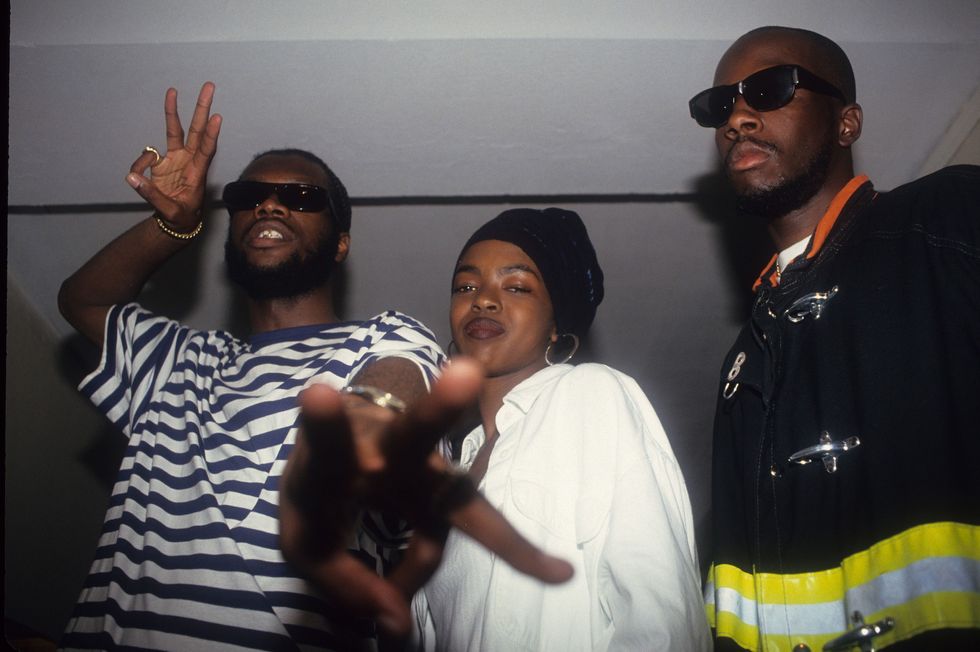
L-Boogie would loosely document the affair in her 1998 opus, The Miseducation of Lauryn Hill, while Wyclef would be more blatant in his 2012 memoir. The tumultuous romantic relationship between a very young Hill and Clef, who was married and six years her senior, reached its peak during the recording of The Score. Internally, though, it was another story. Once the album landed on the Grammys stage in '97, where it took home two awards, it seemed like the Fugees had it all together. Other behind-the-scenes players like Diamond D, John Forte, and the Jersey battle rap outfit Outsidaz contributed to the piecing together of a classic as well.įrom the group to the label to the producers to the guest stars, no one had predicted the impact The Score would have on the music world. A wide range of talents made this possible: There was Wyclef Jean, the artists’ artist, who would push the creative envelope for the band Pras Michel, the businessman with the finely tuned pop ear Jerry Wonda, the project’s most prominent producer Salaam Remi, the confidant and creative paradigm from the Fugees’ 1994 debut, Blunted on Reality, and the producer of "Fu-Gee-La" Joe Nicolo and Chris Schwartz, owners of the Fugees’ imprint Ruffhouse Records, who gave the group room to breathe as they found their voice. Reminding the world that rap music could come to life via instruments was a huge part of their success as well, offering in many cases an alternative to gangsta rap’s harder side. Hill's dual-threat presence, Jean's booming toasts, and Pras' knotty rhymes made Fugees a shining example of balance The Score's sonic palette, which honored the New York area's then-burgeoning underground through precise use of massive hits and crate-dug gems, made the group's second album a key part of hip-hop's 1990s explosion.Lauryn Hill’s uncanny ability to volley between singing and rapping was a gift that would afford Fugees simultaneous credibility in pop and rap worlds, but it certainly wasn’t the only factor. The former allowed her to show off her reference-packed, thoughtful MC skills, while the latter established her rich, confident alto as one of R&B's great voices. "Ready or Not," which flipped a late-'60s single by the Philly soul outfit The Delfonics into a rallying cry for Black music, and "Killing Me Softly With His Song," a boom-bap-propelled cover of the ode to musicians made famous by Roberta Flack in the early '70s, both defined late-'90s hip-hop and turned Hill into one of its biggest female stars. (If you use the intricate, incisive rhymes the trio casts across The Score as a predictor, the answer is "a lot.")įugees' take on the swaggering yet claustrophobic sonics of '90s East Coast hip-hop give The Score a charge that remains electric decades later, as the boastful "Fu-Gee-La" and the hazy title track prove. Its lyrics are pointed and political, while also being laced with wit: "How many mics do we rip on the daily?" Hill and Jean crow on "How Many Mics," the album's first proper song.


The homespun hip-hop production on The Score gives it a vibe not unlike a lengthy listening session with friends, complete with running gags that bust up the room its sample list includes hooks from classic soul sides and sound-system-worthy beats, as well as bits borrowed from Enya, Francisco Tárrega, and The Moody Blues.

The album that came out of that cellar, 1996's The Score, became one of the defining hip-hop albums of the '90s and launched Jean and his bandmates Lauryn Hill and Pras to stardom.

When the New Jersey hip-hop trio Fugees regrouped to record their second album, they went underground-to the basement of Wyclef Jean's uncle, which was transformed into a recording studio and rechristened as the Booga Basement.


 0 kommentar(er)
0 kommentar(er)
